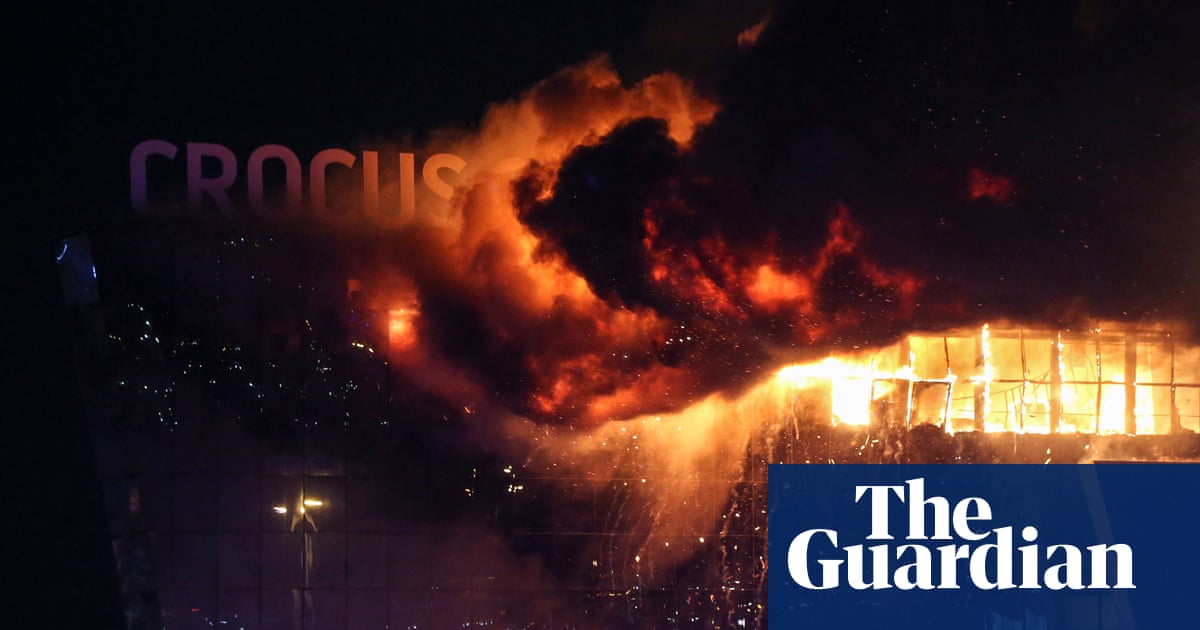Speculation on Moscow terror attack intensifies: ISKP claims responsibility
Speculation grows surrounding the recent terror attack in Moscow as ISKP claims responsibility, raising political tensions in Russia and abroad.

Uncovering the Alleged Perpetrator
As news of the shooting at Crocus City Hall in Moscow spread like wildfire, fingers quickly pointed towards the notorious Islamic State Khorasan Province (ISKP). This regional branch of the terrorist organization has a history of involvement in Russia's previous terror incidents, such as the 2017 St. Petersburg metro bombing that resulted in 15 deaths and 45 injuries.
According to US intelligence reports, there is "no reason to doubt" the claims made by IS regarding their responsibility for the attack. The group, primarily based in Afghanistan, has shifted its focus towards Russia since the US withdrawal from Afghanistan in 2021. Formed in 2015 by militants from various countries, including Pakistan and Uzbekistan, ISKP has been active in central Asia and Russia, executing deadly attacks like the twin bombings in Iran earlier this year that claimed nearly 100 lives.
Global Ramifications
General Michael Kurilla, the commander of US Central Command, highlighted the growing threat posed by ISKP during his testimony to the House armed services committee. He emphasized that the group, along with its allies, continues to pose a significant danger globally, calling for attacks on anyone who opposes their extremist ideology.
The recent attack in Iran showcased ISKP's resilience and capability to carry out large-scale operations beyond their usual territory. This has raised concerns about their potential to launch similar attacks in other countries, including Russia.
Security Measures and Precautions
Russia's FSB security service reported thwarting an armed attack planned by ISKP on a synagogue in the Kaluga region near Moscow. The militants were allegedly preparing to target the synagogue's parishioners using firearms, emphasizing the heightened security risks faced by religious institutions in the region.
Following these developments, the US embassy issued a rare warning to American citizens, advising them to avoid large gatherings and concerts due to potential extremist threats. CNN also revealed that US intelligence had shared specific information with Russia since November regarding ISKP's intentions to conduct attacks within Russian borders.
Geopolitical Implications
Russian President Vladimir Putin's intervention in the Syrian civil war in 2015 played a pivotal role in combating both opposition forces and Islamic State militants. However, ISKP's continued focus on Russia, particularly through propaganda targeting Putin, has raised concerns about the country's vulnerability to terror threats.
The claim made by ISKP has shifted attention away from earlier speculations linking the attack to Ukraine. Dmitry Medvedev, Russia's former president and current deputy head of the security council, issued a strong statement vowing retribution against anyone involved in the attack, even hinting at potential Ukrainian involvement.
In response, Ukrainian officials vehemently denied any connection to the Moscow terror attack, emphasizing their country's commitment to non-violent solutions and distancing themselves from any terrorist activities.
By dissecting the complexities of the Moscow terror attack and its potential geopolitical impact, we can better understand the evolving threats faced by nations in today's volatile global landscape. Stay informed, stay vigilant.Hey there, I'm Mohamed Rahat, your go-to writer for all things business and economy. Originally from Mumbai, now rocking it in Navi Mumbai. With a past life at Tata Power Co. Ltd., I'm here to unravel the mysteries of the economic world, one article at a time. Stick around for some mind-bending insights! Connect With Me